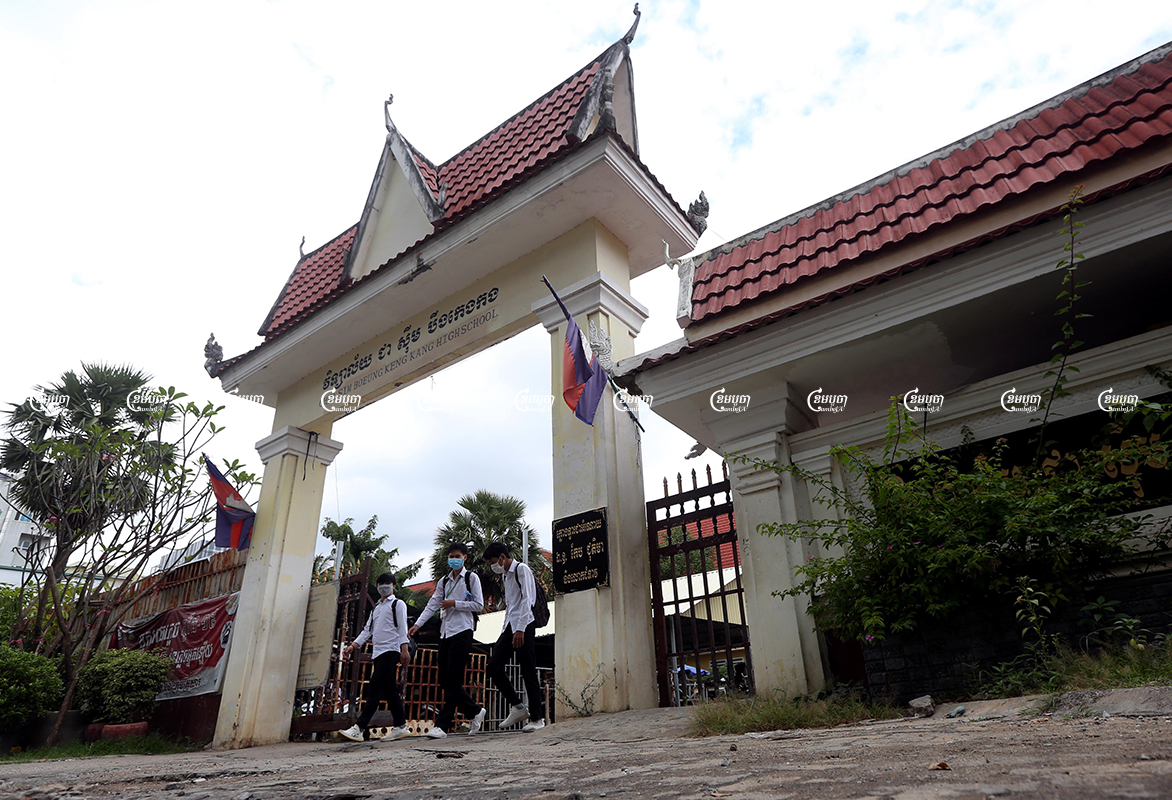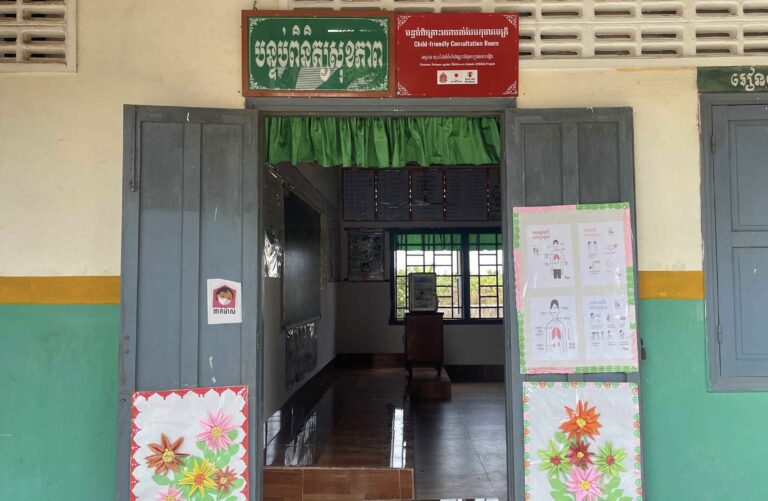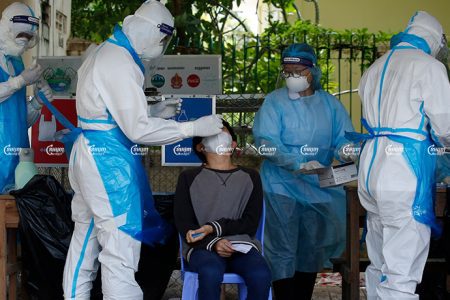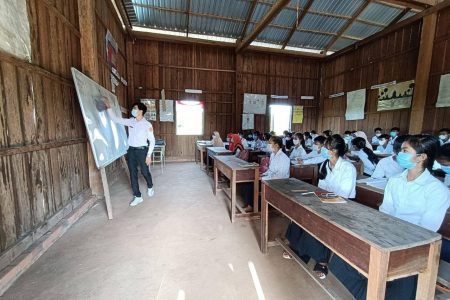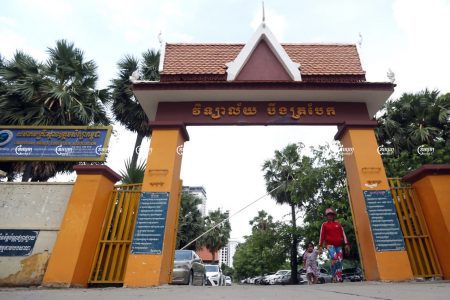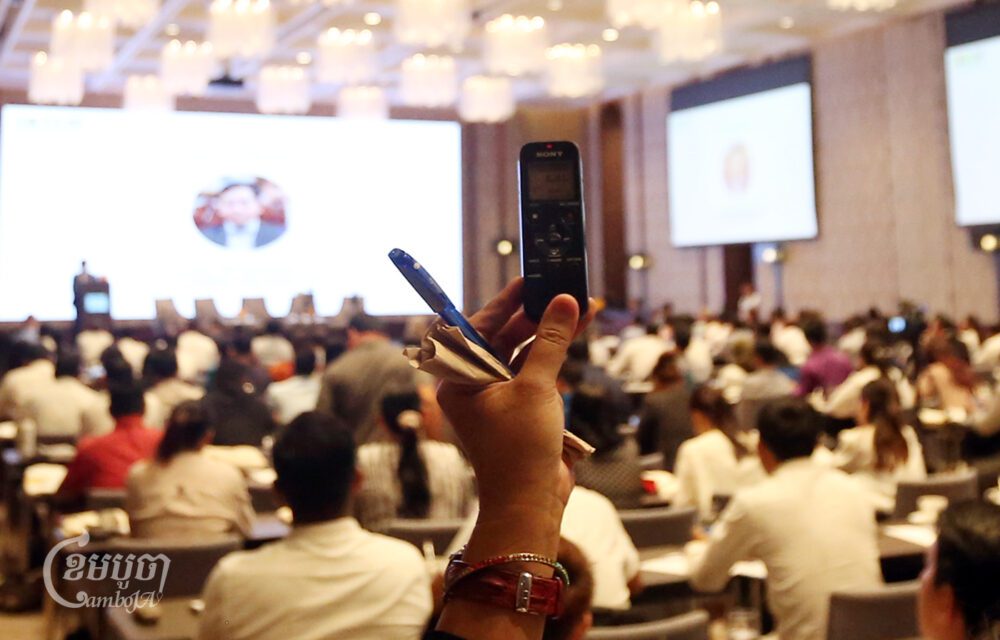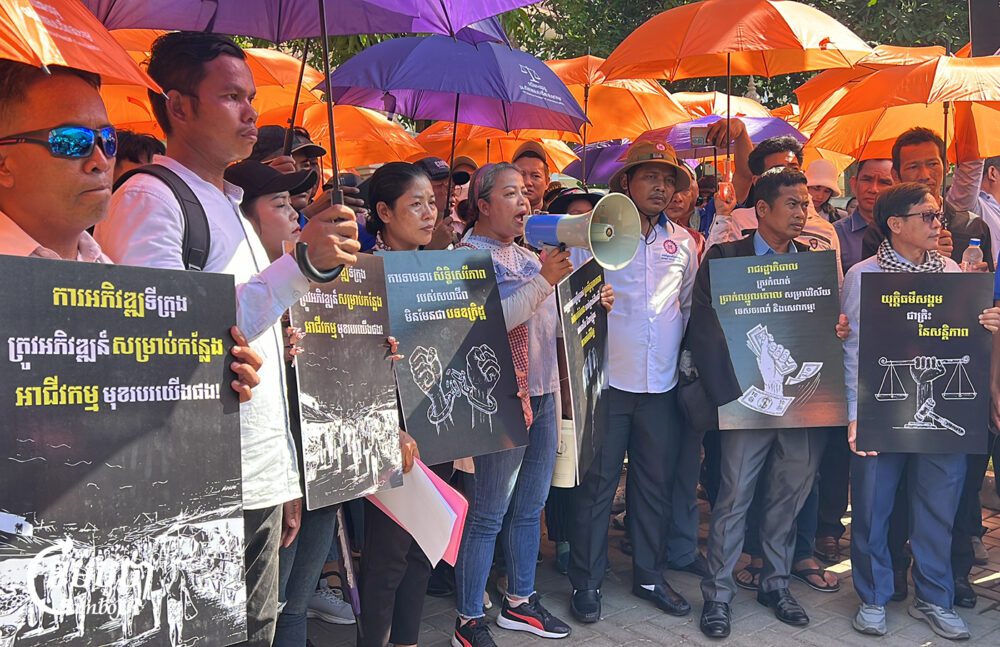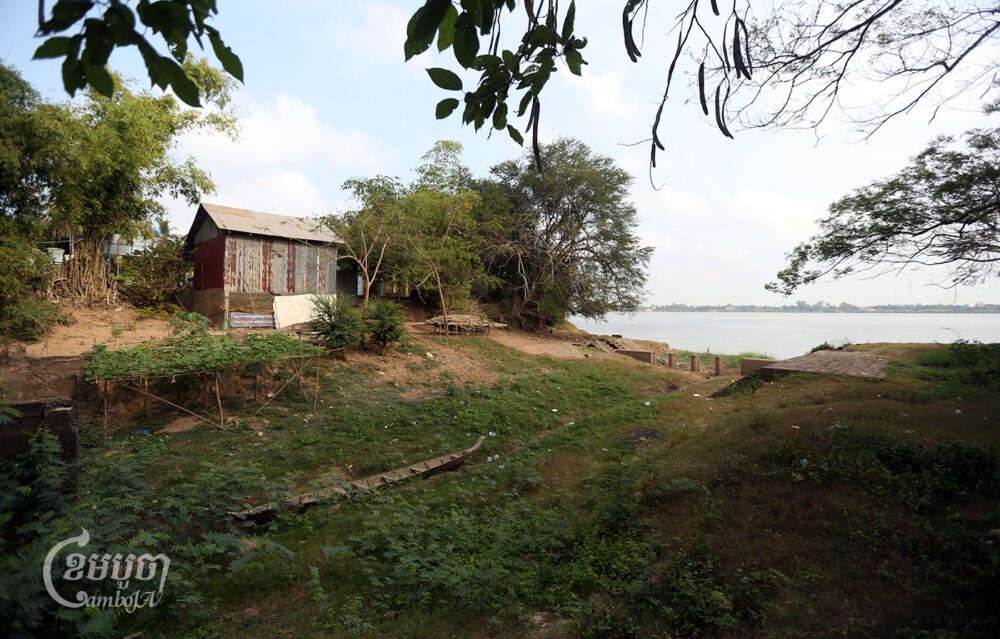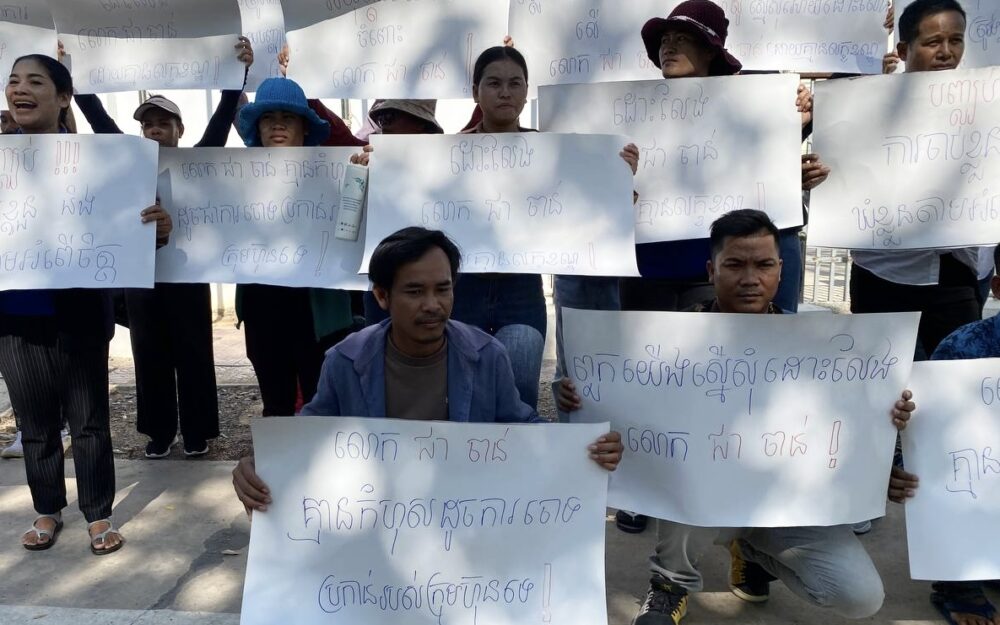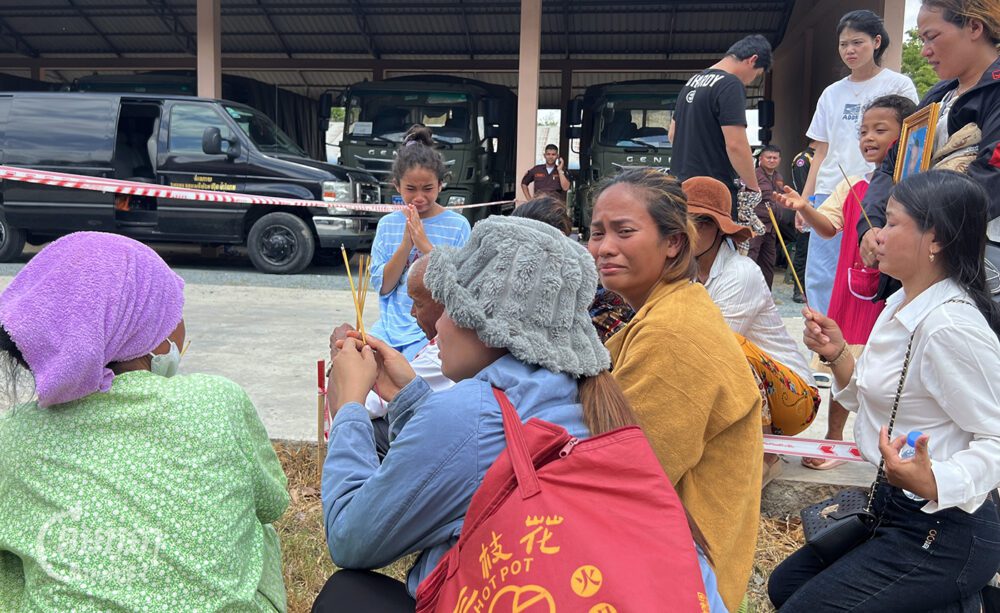Public and private educational institutions across the country will open their doors November 1, marking another major step in the reopening of Cambodian society.
In a statement released October 21, the Ministry of Education announced that a wide range of educational institutions from the primary level and up will be allowed to conduct in-person classes at the start of next month. However, the ministry cautioned, schools still need to follow health guidelines to ensure a safe reopening.
The statement explained the new measures are based on the success of earlier, more limited school reopenings. As of now, 30 percent of educational institutions are already holding physical classes in accordance with the Ministry’s instructions. Additionally, a combination of high vaccination rates and low COVID-19 case numbers among teachers and students after the Pchum Ben holiday also helped the Education Ministry decide the time was right for students to physically return to class.
As long as infection rates remain manageable, the release stated, classes will remain in-session with no more than 20 students.
However, even though students will soon be returning to the classroom, the Education Ministry also encouraged students and educators to make use of mixed or distance learning methods, especially in places with higher COVID transmission rates. The statement said students need to learn both online and in the class in order to decrease the risk of contracting the virus.
As for teachers, those who are not vaccinated are asked to do so before returning to in-person instruction.
‘’Teachers who have not yet been vaccinated are required or encouraged to get full jabs or they are not allowed to teach in the class, while teachers who are [aged 50 and older] should continue teaching online,” the statement read.
According to the statement, in cases of classroom spread of COVID-19 education officials need only to suspend the affected classes, while other students and institutions as a whole can continue learning activities as usual.
Education Ministry spokesman Ros Soveacha told CamboJA the ministry strongly supports all educational institutions to use rapid COVID-19 testing before returning back to class.
Such practices are part of the oft-described ‘new normal’ facing society as it moves on from the most dire stages of the pandemic.
After a long period of online or other forms of distance learning, many students and teachers are finding excitement in the prospect of gathering again for in-person classes.
San Saory, a 21-year-old university student majoring in civil engineering at National Polytechnic Institute of Cambodia, told CamboJA he hasn’t been able to physically go to class in nearly two years due to pandemic conditions. He said distance learning has been difficult for students such as himself who study practical skills, as their education requires field work and hands-on experience.
‘’We need to have practical experience after learning theories,” Saory said. “We need to go to field work in order to learn more at the actual workplace. But due to COVID-19, everything is impossible.”
Still, he said he has managed to learn online and is now excited to put that theory-based knowledge to use.
‘’I cannot wait to get back to school and take what I have learnt online to practice at school to gain more practical experiences,” he said.
Neang Saosovichea, 20, is another university student who said he has positive feelings about going back to school. He’s majoring in information technology at Royal University of Phnom Penh and said he’s looking forward to seeing his friends, as well as the more in-depth learning opportunities afforded by physically being on-campus.
‘’I am happy about that. I am not so worried about contracting the virus when studying in class, as university students are mature enough to take care of themselves,” said Saosovichea.
However, not everyone agrees with the push to reopen schools or sees it as a safe option.

Ouk Chhayavy, president of the Cambodia Independent Teachers’ Association, told CamboJA she is worried for the health of teachers and students during the ongoing COVID-19 outbreak.
‘’Reopening school at this time will put teacher and student health at a high risk because COVID-19 is not gone yet. I personally think the ministry should wait a bit more to observe the situation,” said Chhayavy.
She said young children in particular are more likely to contract COVID-19 because they will be less aware of how to protect themselves if they are allowed back in class.
But many schools have already reopened, following earlier instructions from Prime Minister Hun Sen to begin in-person learning where it is considered safe to do so.
In Kratie province, Lay Bora, director of the provincial education department, said nearly all educational institutions will be reopened early next month as per the Education Ministry’s statement. Bora said about eight schools that had been as COVID-19 treatment and quarantine facilities have been restored for educational purposes ahead of the reopening. So far, about a dozen secondary and high schools and all but 34 of the province’s 286 primary schools have already resumed in-person learning.
In Preah Sihanouk province, Neang Sreyly, a grade-one teacher at Ochomna primary school, told CamboJA that reopening school is a good way to improve students’ academic performances, especially given the difficulties for young children to learn online. But she’s also worried for the safety of her classes, as most of her students have not yet been vaccinated and cannot follow safety health guidelines properly due to their age.
‘’About 50 percent of my students have not yet been vaccinated as they are not eligible to get COVID-19 jabs. So, it is serious if school really opens,” said Sreyly.
On Saturday, the Ministry of Health reported a decline in new COVID-19 cases to 144 with 10 deaths, bringing the total count to 117,644 cases and 2,725 deaths since the pandemic began in early 2020. The ministry has also recorded 112,658 recoveries from the viral disease.
As of October 22, a little more than 99 percent of a target population of 10 million people had received vaccinations, according to official statistics. With this, slightly more than 90 percent of children and youth of ages 12-20 have been vaccinated, while virtually all children of ages 6-12 are reported to have been vaccinated.


